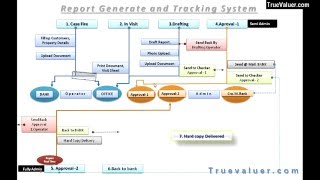Saturday, 01 November, 2025г.
















Где искать: по сайтам Запорожской области, статьи, видео ролики
пример: покупка автомобиля в Запорожье
What is Fair Market Value? Valuation Questions Regarding Key-Man Insurance
What is Fair Market Value? Valuation Questions Regarding Key-Man Insurance http://www.valuationstlouis.com 314-541-8163
Most business owners think their company is worth millions. Then they work with a valuation company to discuss exit planning and they learn that there is a process to value a business.
Their next question is: what is fair market value? Most company owners don’t understand that there are different standards of value, which relate to the different purposes for getting a valuation.
Fair market value is a standard of value. Investment value is a different standard of value.
Many times, a company owner may want a valuation for strategic planning purposes. One reason is to get key-man insurance to protect the business and other partners if something happens to one of the owners.
The insurance will then pay out to the company and/or to the estate of the deceased owner. In this case they are typically looking at fair market value.
Fair market value or FMV is the price a hypothetical willing buyer would pay for the business. This means somebody walking off the street with no knowledge of your industry and no experience in your business.
Typically, one of the methods of valuation expert is going to utilize to determine fair market value is the income approach. The income approach will consider cash flow and the risk that that cash flow will continue into the future.
It’s difficult for a business valuation expert to just arbitrarily increase or decrease the value of a business because the owner thinks it’s worth more.
Part of that reason is that there is just a certain amount of cash flow that the business is making.
Most of the time owners are looking at lowering the cash flow each year for tax purposes and then when they go to sell the company they have to add-back all the “extra” expenses which are not necessary to the operations.
This is where the valuation expert will look at discretionary expenses or expenses that are non-operating and would be excluded if there were a new buyer or owner.
This means that if the business owner runs various expenses through the company, which may be reasonable for tax deduction purposes, but is really not important to the operations of the company, then these “discretionary expenses” could be excluded - which means cash flow will go up and therefore the value will go up.
Once these adjustments are made, an owner can start to see what the cash flow would be for the new buyer and the resulting fair market value of the company.
Typically, a valuation company will review five years of historical information and present the adjustments for all five years.
There are a few industries that a buyer will pay large multiples of EBITDA for companies or even multiples of revenue. But most of the time the buyer wants to see a consistent cash flow, increasing over time, which is not completely reliant upon one owner or one salesperson. They want to see that the cash flow will transfer to them upon the sale of the company.
If you have more questions about fair market value or EBITDA multiples, please call or text your questions to (314) 541-8163.
We are a business valuation company in St. Louis, serving all parts of Missouri, Illinois and other states around the country.
Теги:
what is fair market value fair market value business valuation expert company valuation expert valuation company st. louis valuation company Missouri valuation company Illinois value of a business standard of value investment value strategic planning exit planning key-man insurance income approach cash flow EBITDA multiples
Похожие видео
Мой аккаунт


 У вашего броузера проблема в совместимости с HTML5
У вашего броузера проблема в совместимости с HTML5


